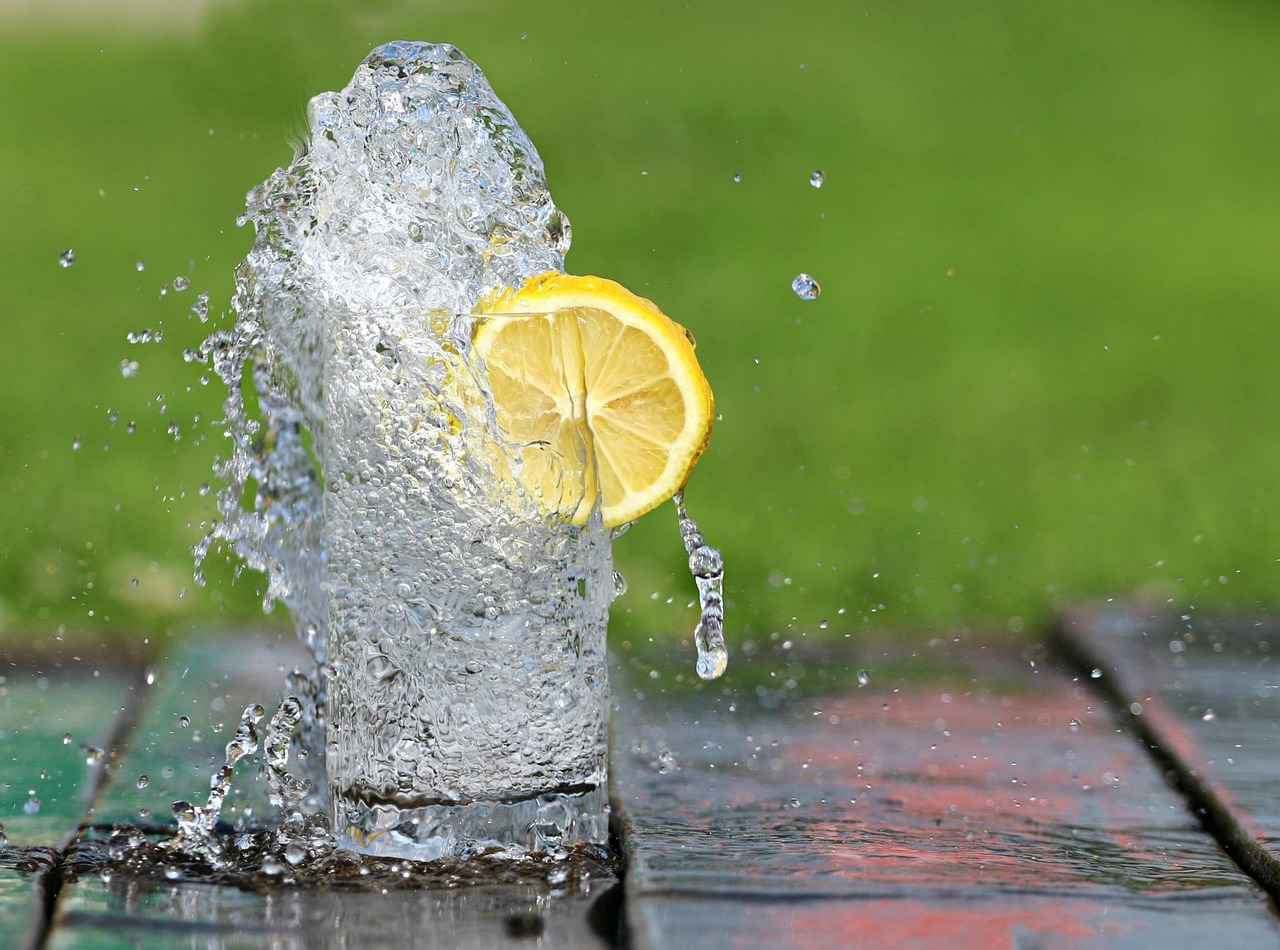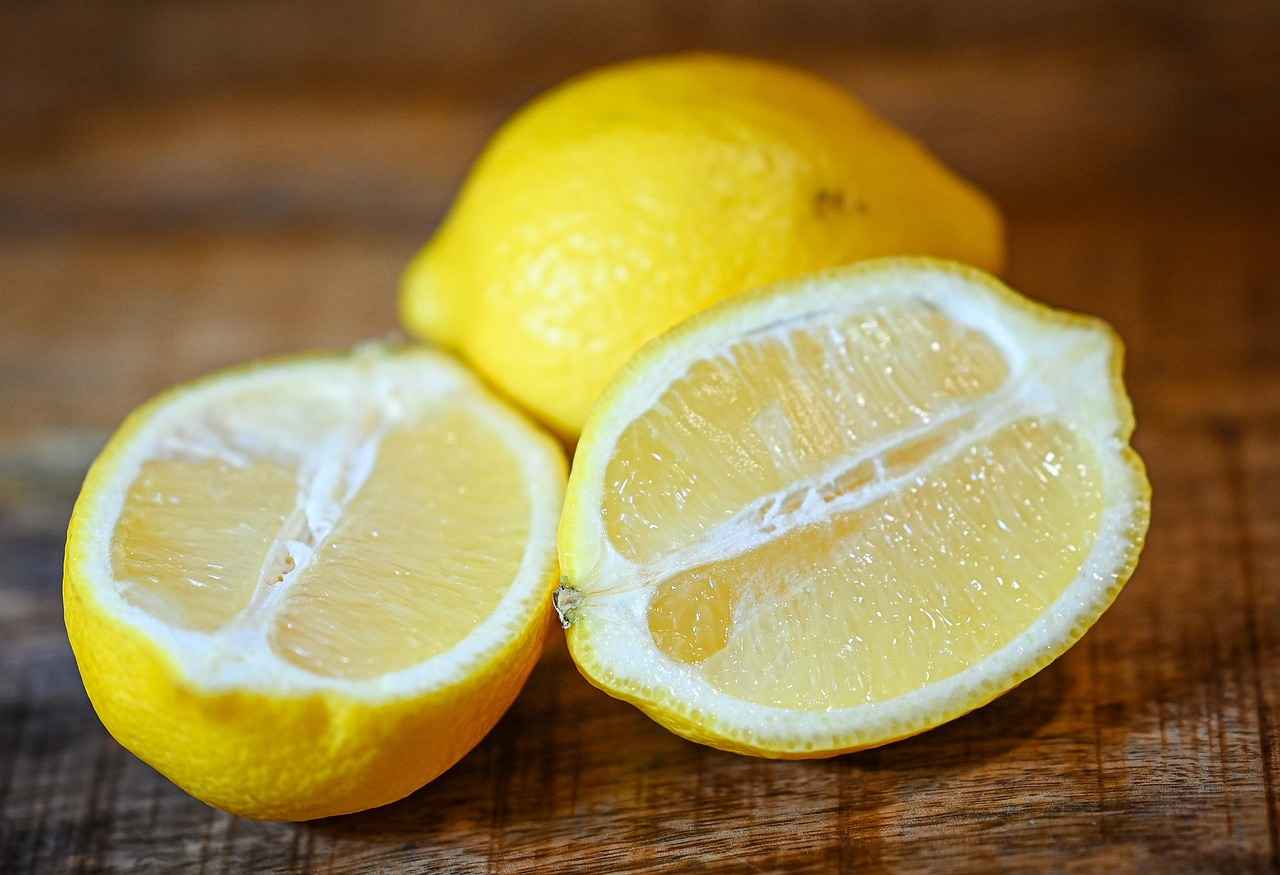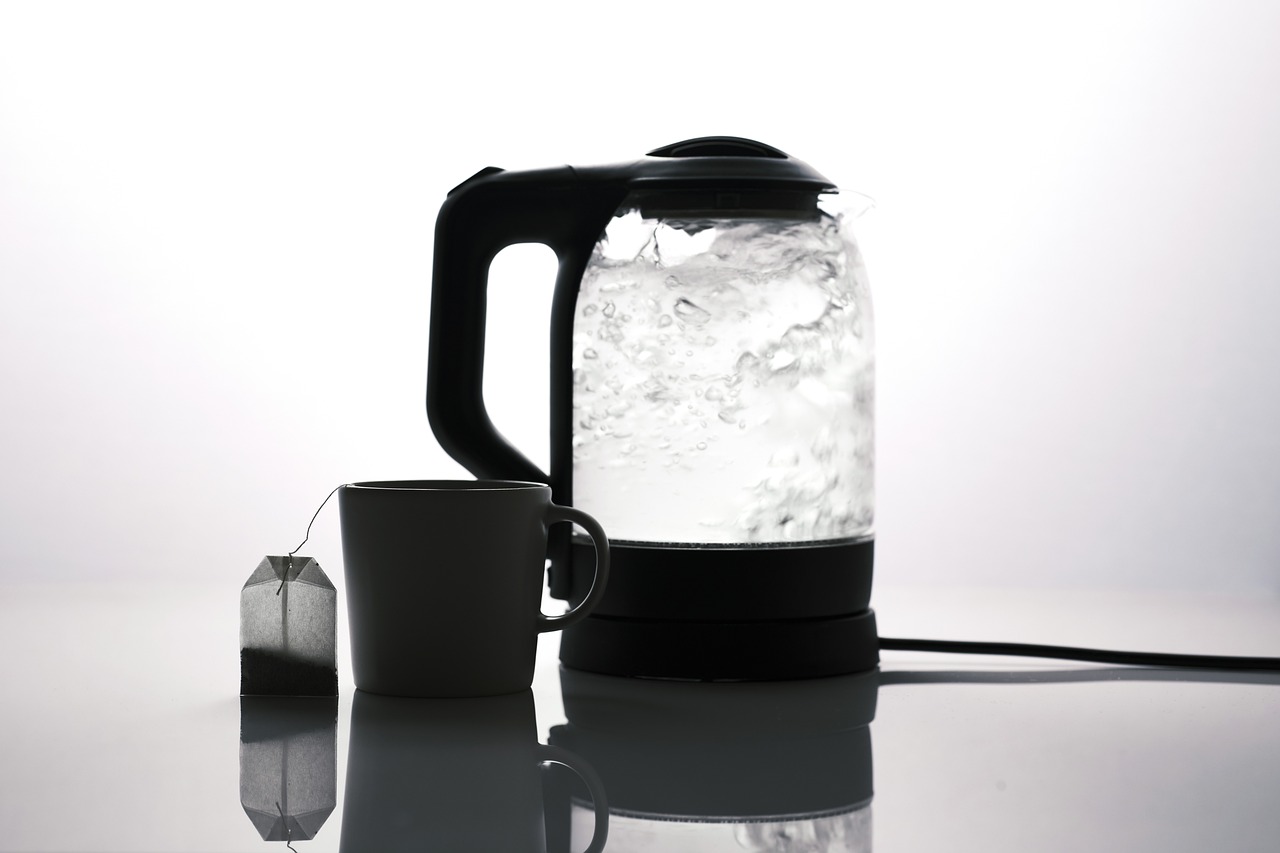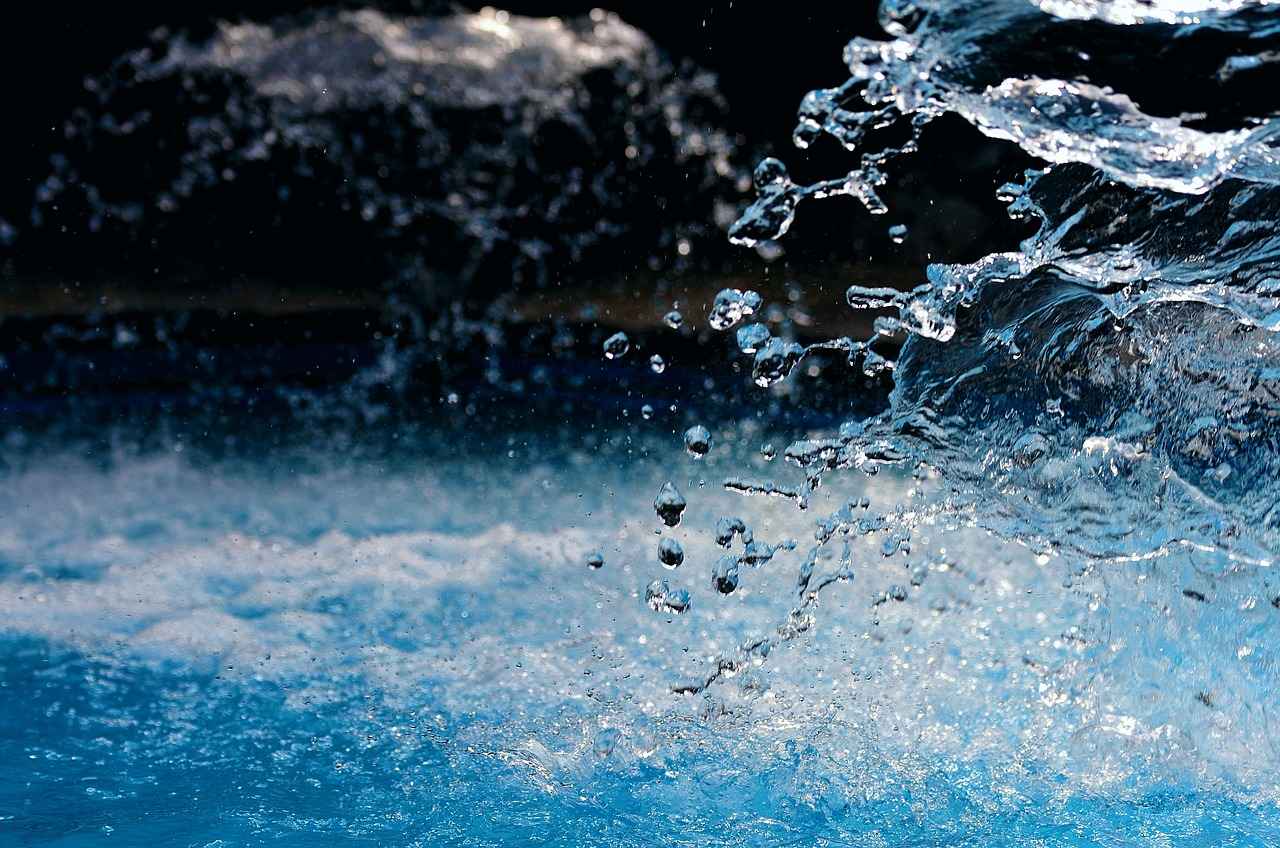This article explores the impact of lemon water on fasting, examining its effects on metabolism, health benefits, and how it fits into various fasting protocols to provide a comprehensive understanding.
The Basics of Fasting
Understanding the principles of fasting is essential for anyone considering this dietary approach. Fasting can take various forms, each with unique rules and benefits that affect how our bodies respond. The most common types include intermittent fasting, water fasting, and extended fasting.
What is Lemon Water?
Lemon water is a simple mixture of water and lemon juice, often touted for its health benefits. It is a refreshing drink that is low in calories and rich in flavor, making it a popular choice among health enthusiasts.
Nutritional Content of Lemon Water
- Low in Calories: Lemon water contains minimal calories, typically less than 10 calories per serving.
- Rich in Vitamin C: One of the primary benefits of lemon water is its high vitamin C content, which supports the immune system.
Caloric Impact on Fasting
Understanding the caloric content of lemon water helps determine its impact on fasting. Since it contains very few calories, many experts believe it does not significantly disrupt fasting.
Vitamins and Minerals in Lemon Water
Lemon water is rich in vitamin C and other essential nutrients. These components can benefit health without significantly affecting fasting, as they do not provide enough calories to trigger an insulin response.
Health Benefits of Lemon Water
Lemon water is praised for its numerous health benefits, including:
- Hydration: Staying hydrated is crucial during fasting, and lemon water can enhance the flavor of plain water.
- Digestion: Lemon water may improve digestion and help prevent bloating.
- Detoxification: It is believed to support liver function and detoxification processes.
Types of Fasting
Different fasting methods have varying rules regarding food and drink consumption. Here’s how lemon water fits into popular fasting types:
Intermittent Fasting
Intermittent fasting is a widely practiced method that alternates between eating and fasting periods. During fasting windows, lemon water is generally considered acceptable, as it has minimal calories.
Water Fasting
Water fasting involves consuming only water for a set period. While strict adherents may avoid lemon water, others may choose to include it for added flavor and health benefits.
Does Lemon Water Break a Fast?
A common question among those practicing fasting is whether lemon water disrupts the fasting state. Research suggests that the negligible calorie content of lemon water does not significantly impact fasting benefits.
Insulin Response and Fasting
Fasting aims to minimize insulin levels to promote fat burning. Studies indicate that lemon water does not trigger a significant insulin response, making it a safe choice during fasting.
Autophagy and Lemon Water
Autophagy is a cellular process enhanced by fasting. Current evidence suggests that lemon water does not interfere with autophagy, allowing individuals to reap the benefits of both fasting and hydration.
Practical Tips for Incorporating Lemon Water
For those who wish to enjoy lemon water while fasting, here are some practical tips:
Best Times to Drink Lemon Water
Knowing when to consume lemon water can enhance its benefits. Consider drinking it first thing in the morning or during fasting windows to stay hydrated.
How to Prepare Lemon Water
Preparing lemon water is simple. Just squeeze half a lemon into a glass of water. For variety, consider adding mint leaves or cucumber slices for additional flavor.

The Basics of Fasting
Understanding the principles of fasting is essential for anyone considering this dietary approach. Fasting is not merely a diet; it is a lifestyle choice that can lead to significant health benefits when approached correctly. There are various forms of fasting, each with unique rules and benefits that affect how our bodies respond. This article will delve into the fundamentals of fasting, its types, and how it can be effectively integrated into daily life.
At its core, fasting involves abstaining from food for a specific period, allowing the body to enter a state of metabolic change. During fasting, the body shifts from using glucose as its primary energy source to utilizing fat stores, which can lead to weight loss and improved metabolic health. This shift can also enhance insulin sensitivity, promoting better blood sugar control.
There are several popular fasting methods, including:
- Intermittent Fasting: This method alternates between periods of eating and fasting, such as the 16/8 method, where one fasts for 16 hours and eats during an 8-hour window.
- Water Fasting: Involves consuming only water for a set period, often lasting from 24 hours to several days.
- Alternate-Day Fasting: This approach alternates between fasting days and regular eating days, making it a more flexible option.
- Extended Fasting: Involves fasting for longer periods, typically exceeding 48 hours, which can lead to deeper metabolic changes.
Each method has its own set of rules and potential benefits. For example, intermittent fasting is popular for its simplicity and ease of integration into daily routines. It allows individuals to enjoy the benefits of fasting without drastically altering their eating habits.
Moreover, fasting can stimulate a process called autophagy, where the body cleans out damaged cells and regenerates new ones. This process is believed to play a crucial role in longevity and disease prevention. However, it is essential to note that the duration and type of fasting can influence the effectiveness of autophagy.
In addition to weight loss and improved metabolic health, fasting may offer other health benefits, including:
- Enhanced Brain Function: Some studies suggest that fasting can promote brain health by reducing inflammation and oxidative stress.
- Improved Heart Health: Fasting may help lower blood pressure, cholesterol levels, and triglycerides, contributing to a healthier cardiovascular system.
- Better Digestion: Giving the digestive system a break can improve gut health and lead to better nutrient absorption.
While fasting can offer numerous benefits, it is not suitable for everyone. Individuals with certain health conditions or those who are pregnant should consult a healthcare professional before starting any fasting regimen. It’s crucial to listen to your body and adjust accordingly, ensuring that fasting aligns with your overall health goals.
In summary, understanding the basics of fasting is vital for anyone looking to adopt this dietary approach. By exploring different methods and their respective benefits, individuals can make informed decisions on how to incorporate fasting into their lifestyles effectively.
Lemon water is a refreshing beverage made by mixing fresh lemon juice with water. Its popularity has surged in recent years, particularly among health enthusiasts, due to its numerous purported health benefits. This simple drink is not just a flavorful alternative to plain water; it also provides a range of essential nutrients that can contribute to overall wellness. In this section, we will delve into the nutritional profile of lemon water and explore why it has become a staple in many health-conscious diets.
Lemon water is low in calories, making it an excellent choice for those watching their weight. A typical serving contains just 6-12 calories, depending on the amount of lemon juice used. This low caloric impact is one reason why lemon water is often included in various fasting protocols.
- Vitamin C: One of the most significant benefits of lemon water is its high vitamin C content. Just one medium lemon provides approximately 31 mg of vitamin C, which is about 34% of the recommended daily intake. Vitamin C is essential for a healthy immune system and acts as a potent antioxidant.
- Potassium: Lemons are also a good source of potassium, which helps maintain proper muscle function and regulates blood pressure.
- Flavonoids: The phytonutrients in lemons, including flavonoids, contribute to their antioxidant properties, promoting overall health.
Understanding the caloric content of lemon water is crucial for those engaging in fasting. Since it contains minimal calories, many experts suggest that it can be safely consumed during fasting periods without significantly disrupting the metabolic state. This makes it an appealing choice for those who want to enhance hydration and flavor without breaking their fast.
In addition to vitamin C and potassium, lemon water contains small amounts of other vitamins and minerals, including vitamin B6, magnesium, and calcium. These nutrients play vital roles in bodily functions, from energy metabolism to bone health. The addition of lemon to water not only enhances its taste but also boosts its nutritional profile, making it a more beneficial choice than plain water.
The health benefits of lemon water extend beyond hydration. Drinking lemon water regularly can aid in digestion by promoting the production of stomach acid, which is vital for breaking down food. Additionally, it may help detoxify the liver and improve skin health due to its antioxidant properties. Many people also report feeling more energized and alert after incorporating lemon water into their daily routine.
Furthermore, the hydration that comes from drinking lemon water can support weight loss efforts. Staying hydrated is essential for maintaining a healthy metabolism, and lemon water can make this process more enjoyable. The refreshing taste may encourage individuals to drink more fluids throughout the day, helping to stave off hunger and reduce overall caloric intake.
In summary, lemon water is more than just a tasty drink. Its nutritional benefits and health-promoting properties make it a popular choice among health enthusiasts. By providing essential vitamins and minerals while remaining low in calories, lemon water can be a valuable addition to any diet, especially for those interested in fasting or weight management.

Nutritional Content of Lemon Water
Lemon water is a refreshing beverage that combines the tartness of lemon juice with the hydrating properties of water. It has gained popularity not only for its flavor but also for its nutritional benefits. This section will delve into the nutritional content of lemon water and how it can contribute to overall health.
| Nutrient | Amount per 8 oz (240 ml) |
|---|---|
| Calories | 6 |
| Vitamin C | 18.6 mg (31% DV) |
| Potassium | 104 mg (3% DV) |
| Calcium | 6 mg (1% DV) |
| Magnesium | 2 mg (1% DV) |
One of the standout features of lemon water is its minimal caloric content. With only about 6 calories per 8 oz serving, it is an excellent choice for those looking to stay hydrated without adding significant calories to their diet. This makes it an ideal beverage for anyone following a weight management plan.
Moreover, lemon water is particularly rich in vitamin C, an essential nutrient known for its antioxidant properties. Vitamin C plays a crucial role in supporting the immune system, promoting skin health, and aiding in the absorption of iron from plant-based foods. With just one serving of lemon water providing approximately 31% of the daily value for vitamin C, it is a simple way to boost your intake of this vital nutrient.
In addition to vitamin C, lemon water contains small amounts of other important nutrients, including potassium, which is vital for heart health and maintaining proper muscle function. Although the amounts may seem minimal, they can contribute to your overall nutrient intake when consumed regularly.
Another benefit of lemon water is its potential to enhance hydration. Staying properly hydrated is essential for overall health, as it supports various bodily functions, including digestion, circulation, and temperature regulation. The refreshing taste of lemon can encourage individuals to drink more water throughout the day, promoting better hydration.
Furthermore, lemon water can aid in digestion. The citric acid found in lemons may help stimulate the production of stomach acid, which is necessary for proper digestion. Some people find that drinking lemon water before meals can help reduce bloating and discomfort, making it a useful addition to a healthy diet.
In summary, lemon water is a low-calorie beverage packed with nutritional benefits. Its high vitamin C content, along with other essential nutrients, makes it a valuable addition to any diet. By incorporating lemon water into your daily routine, you can enjoy its refreshing taste while reaping the numerous health benefits it offers.
Caloric Impact on Fasting
When it comes to fasting, understanding the caloric content of what you consume is crucial. In the context of lemon water, many people wonder if its minimal calorie count can impact the fasting process. This section will delve into how calories influence fasting and clarify whether lemon water can be included in your fasting regimen without breaking your fast.
Lemon water, a mixture of water and freshly squeezed lemon juice, is often heralded for its health benefits, including hydration and a boost in vitamin C intake. However, its caloric impact is a significant factor for those practicing fasting. Typically, a glass of lemon water contains approximately 6 to 10 calories, depending on the amount of lemon juice used. This low caloric content raises the question: does it break a fast?
To understand this, we must first consider the purpose of fasting. Fasting is primarily aimed at reducing insulin levels and promoting fat burning. When you consume any calories, there is a potential for the body to trigger an insulin response. However, the minimal calories in lemon water are unlikely to provoke a significant insulin spike. This is a critical point for those who want to enjoy lemon water during their fasting periods.
Moreover, the benefits of lemon water extend beyond mere hydration. The vitamin C found in lemons can enhance your immune system and contribute to overall health, making it a valuable addition to a fasting routine. The antioxidants present in lemon juice may also help reduce inflammation and support metabolic processes, which can be advantageous during fasting.
It’s also essential to note that the type of fasting you are following may influence whether lemon water is acceptable. For instance, in intermittent fasting, where the goal is to limit caloric intake during fasting windows, lemon water is generally considered acceptable due to its low calorie count. On the other hand, in water fasting, which strictly limits intake to water only, lemon water would not be permitted.
In practical terms, if you choose to incorporate lemon water into your fasting routine, consider the timing. Drinking lemon water in the morning can help kickstart your metabolism and provide a refreshing start to your day. Additionally, it can be an excellent way to stay hydrated throughout the day, especially during fasting periods.
In conclusion, while lemon water does contain calories, its minimal caloric content is unlikely to disrupt the fasting state for most individuals. For those looking to enhance their fasting experience while still enjoying a flavorful drink, lemon water can be a beneficial option. Always remember to listen to your body and adjust your fasting practices to what feels best for you.
Vitamins and Minerals in Lemon Water
Lemon water is a refreshing beverage that combines the zesty flavor of lemons with the hydration of water. This simple drink is not only popular for its taste but also for its impressive nutritional profile. Rich in vitamin C, lemon water offers a variety of health benefits while remaining low in calories, making it an excellent choice for those who are fasting.
One of the standout features of lemon water is its high vitamin C content. This essential nutrient plays a crucial role in supporting the immune system, promoting collagen production, and enhancing the absorption of iron from plant-based foods. Additionally, vitamin C acts as a powerful antioxidant, helping to protect the body from oxidative stress and inflammation.
In addition to vitamin C, lemon water contains small amounts of other vitamins and minerals, including potassium, magnesium, and B vitamins. Potassium is vital for maintaining proper muscle function and regulating blood pressure, while magnesium supports various biochemical reactions in the body, including energy production. The presence of B vitamins contributes to overall energy levels and metabolic processes.
What makes lemon water particularly appealing during fasting is its minimal caloric impact. A typical serving of lemon water contains approximately only 5-10 calories, which is negligible in the context of most fasting protocols. This low-calorie count means that it is unlikely to disrupt the fasting state, allowing individuals to reap the benefits of hydration and essential nutrients without significantly affecting their metabolic processes.
Moreover, the alkalizing effect of lemon water can aid in maintaining the body’s pH balance. Despite being acidic in nature, lemons have an alkalizing effect once metabolized, which can help reduce acidity in the body. This is particularly beneficial for those who are fasting and may experience fluctuations in body acidity due to dietary changes.
Another important aspect to consider is the role of lemon water in promoting hydration. Staying hydrated is crucial during fasting, as it helps to support overall bodily functions, including digestion and metabolism. Lemon water can make hydration more enjoyable, encouraging individuals to drink more fluids throughout the day.
In summary, lemon water is a nutrient-rich beverage that provides essential vitamins and minerals, particularly vitamin C, while having a minimal caloric impact. Its benefits extend beyond hydration, supporting immune function, reducing acidity, and enhancing overall health. For those practicing fasting, incorporating lemon water can be a flavorful and healthful way to stay hydrated and nourished without breaking the fast.
Health Benefits of Lemon Water
Lemon water has gained popularity as a refreshing beverage known for its health benefits. This simple mixture of water and fresh lemon juice is not only delicious but also packed with essential nutrients that can support overall well-being. In this section, we will explore the various health benefits of lemon water, focusing on its role in hydration, digestion, and detoxification, and how these advantages relate to fasting practices.
- Hydration: Staying hydrated is crucial for maintaining optimal health. Lemon water serves as a flavorful alternative to plain water, encouraging increased fluid intake. Proper hydration supports various bodily functions, including temperature regulation, joint lubrication, and nutrient transportation.
- Digestion: Lemon water may aid digestion due to its acidity, which can help stimulate the production of stomach acid. This can enhance the digestive process, making it easier for the body to break down food and absorb nutrients. Additionally, lemon water can alleviate symptoms of indigestion and bloating.
- Detoxification: The liver plays a vital role in detoxifying the body, and lemon water can support liver function. The citric acid in lemons may help enhance the liver’s ability to flush out toxins. Furthermore, lemon water acts as a diuretic, promoting urination and helping to eliminate waste products from the body.
When considering fasting, the health benefits of lemon water become even more relevant. During fasting periods, maintaining hydration is essential, and lemon water can provide a refreshing option without significantly impacting caloric intake. The minimal calories found in lemon water—approximately 6 calories per 8-ounce serving—make it an ideal choice for those looking to stay within their fasting guidelines.
Moreover, the vitamin C content in lemon water contributes to immune system support, which is particularly beneficial during fasting when the body may be under stress. Vitamin C is known for its antioxidant properties, helping to combat oxidative stress and promote overall health.
Incorporating lemon water into your fasting routine can also enhance the experience. The invigorating taste can make fasting more enjoyable and may even help curb cravings for sugary or high-calorie foods. Many people find that the zesty flavor of lemon water provides a satisfying alternative to other beverages, making it easier to adhere to their fasting protocols.
In summary, lemon water is more than just a refreshing drink; it offers a range of health benefits that can support hydration, digestion, and detoxification. For those practicing fasting, lemon water can be a valuable addition, providing essential nutrients while keeping calorie intake low. By understanding these benefits, individuals can make informed choices about their hydration and overall health during fasting periods.
Types of Fasting
Fasting has gained immense popularity as a health and wellness strategy, with various methods designed to suit different lifestyles and goals. Understanding the is crucial for anyone looking to incorporate this practice into their routine. Each fasting method has its own set of rules regarding food and drink consumption, which can significantly impact the fasting experience. In this section, we will explore some popular fasting types and examine how lemon water fits into each.
- Intermittent Fasting: This method involves cycling between periods of eating and fasting. Common protocols include the 16/8 method, where individuals fast for 16 hours and eat during an 8-hour window. During the fasting period, many people wonder if lemon water is permissible. Generally, lemon water is considered acceptable as it contains minimal calories and can help with hydration.
- Water Fasting: This is a more stringent approach where only water is consumed for a set period, often lasting from 24 hours to several days. In this case, lemon water is typically excluded, as the goal is to abstain from all other substances. However, some individuals may choose to add a small amount of lemon juice for flavor, although this could technically break the fast.
- Alternate-Day Fasting: This method alternates days of regular eating with days of fasting. On fasting days, the consumption of lemon water can be beneficial, as it provides hydration without significant caloric intake. This can help individuals manage hunger and maintain hydration levels.
- Extended Fasting: Involves fasting for more than 48 hours, which can lead to significant metabolic changes. During extended fasts, strict adherence to water intake is usually recommended, and lemon water is often discouraged due to its acidity and potential to stimulate digestion, which could disrupt the fasting state.
- Religious Fasting: Many cultures and religions incorporate fasting into their practices, with specific guidelines. For instance, during Ramadan, Muslims fast from dawn until sunset, and while water is prohibited during daylight hours, lemon water can be consumed during non-fasting hours, often served as a refreshing drink to break the fast.
In summary, the type of fasting you choose will influence whether lemon water is suitable for your regimen. While intermittent fasting allows for some flexibility, more stringent methods like water fasting may not permit any additives. Understanding these distinctions can help you make informed decisions about your fasting journey.

Intermittent Fasting
has gained significant popularity as a flexible dieting approach that alternates between periods of eating and fasting. It is celebrated not only for its potential weight loss benefits but also for its positive effects on overall health. One common question among practitioners is whether lemon water is permissible during fasting periods. This article will delve into the implications of consuming lemon water while intermittent fasting, examining its nutritional profile, potential health benefits, and how it fits into various fasting protocols.
Lemon water is essentially a mixture of fresh lemon juice and water, often praised for its refreshing taste and health benefits. When consumed during fasting windows, many wonder if it disrupts the fasting state. To understand this, we must first look at the nutritional content of lemon water.
- Minimal Calories: Lemon water contains very few calories, typically around 6 calories per 8-ounce serving.
- Rich in Vitamin C: A vital antioxidant that supports the immune system and skin health.
- Hydration: Drinking lemon water can enhance hydration, which is crucial during fasting.
One of the primary concerns regarding lemon water during fasting is whether it triggers an insulin response. Research indicates that the small amount of calories and carbohydrates in lemon water is unlikely to cause a significant insulin spike, thus maintaining the fasting state for most individuals.
Incorporating lemon water into your fasting routine can offer several health advantages:
- Improved Digestion: Lemon water can stimulate digestive juices, enhancing gut health.
- Detoxification: The citric acid in lemons may aid in detoxifying the liver.
- Boosted Metabolism: Some studies suggest that lemon water might help increase metabolic rate, which can be beneficial during fasting.
If you decide to include lemon water in your intermittent fasting regimen, consider the following tips:
- Timing: Drink lemon water during your fasting window to enhance hydration and enjoy its benefits without breaking your fast.
- Preparation: To prepare lemon water, simply squeeze half a lemon into a glass of water. You can also add mint leaves or cucumber for added flavor.
In summary, lemon water is a low-calorie beverage that can be safely enjoyed during intermittent fasting without significantly impacting your fasting state. Its nutritional benefits, including hydration and vitamin C content, make it a popular choice among health enthusiasts. By understanding its effects and incorporating it wisely, you can enhance your fasting experience and overall well-being.
Water Fasting
is a dietary practice where individuals consume only water for a specified duration. This method is often employed for various reasons, including weight loss, detoxification, and improved metabolic health. However, this strict approach raises questions about what can be consumed during the fasting period. One common query is whether lemon water can be included without breaking the fast.
To understand the implications of adding lemon water to a water fast, it is essential to explore the nutritional profile of lemon water. A typical glass of lemon water contains minimal calories and is rich in vitamin C, antioxidants, and other beneficial compounds. These nutrients can support hydration and offer health benefits, making lemon water a popular choice among health enthusiasts.
When considering whether lemon water breaks a fast, one must examine its caloric content. Lemon juice contains approximately 4 calories per tablespoon. For those strictly adhering to water fasting, even these few calories may be a concern. However, many experts argue that the low caloric intake from lemon water is unlikely to significantly disrupt the fasting state, especially when compared to the metabolic benefits it may provide.
Lemon water is not just low in calories; it also contains essential vitamins and minerals. The high concentration of vitamin C can enhance immune function and improve skin health. Additionally, the presence of potassium and other electrolytes can help maintain hydration levels, which is crucial during fasting periods.
Incorporating lemon water into a fasting regimen may offer several health benefits. The hydration provided by lemon water can aid in digestion and help alleviate feelings of hunger. Furthermore, the antioxidants in lemon juice can support detoxification processes within the body, making it a complementary addition to fasting.
Different fasting methods have varying rules regarding what can be consumed. For instance, during intermittent fasting, many practitioners allow for non-caloric beverages, including lemon water, during fasting periods. Conversely, those engaging in strict water fasting may choose to avoid lemon water altogether to adhere to the traditional guidelines.
A critical question for many is whether lemon water disrupts the fasting state. Research indicates that the consumption of lemon water is unlikely to trigger a significant insulin response, which is a primary concern for individuals fasting for metabolic benefits. This means that, for many, lemon water can be enjoyed without fear of breaking the fast.
Autophagy, a cellular process that promotes the recycling of damaged cells, is often enhanced during fasting. While there is limited research specifically addressing the impact of lemon water on autophagy, the general consensus is that the low calorie and sugar content of lemon water should not interfere with this beneficial process.
For those who wish to enjoy lemon water during their fasting periods, here are some practical tips:
- Best Times to Drink Lemon Water: Consider consuming lemon water in the morning to kickstart hydration and digestion.
- Preparation: Simply mix the juice of half a lemon with a glass of water. Adjust the amount of lemon to suit your taste.
- Temperature: Experiment with warm or cold lemon water to find what you prefer.
In conclusion, while the strictest forms of water fasting may exclude any additions, many find that incorporating lemon water can enhance their experience without significantly impacting their fasting goals. Ultimately, the decision to include lemon water should align with individual fasting objectives and preferences.
Does Lemon Water Break a Fast?
A common question among those practicing fasting is whether lemon water disrupts the fasting state. This inquiry is essential for those who wish to maximize the benefits of fasting while still enjoying the refreshing taste and potential health benefits of lemon water. In this section, we will explore this question based on expert opinions and scientific research.
Understanding Fasting and Its Goals
Fasting is primarily undertaken for various reasons, including weight loss, improved metabolic health, and enhanced cellular repair processes. The goal is to minimize insulin levels, which promotes fat burning and encourages autophagy, a process where the body cleans out damaged cells and regenerates new ones.
What Happens When You Consume Lemon Water?
Lemon water is made by mixing fresh lemon juice with water. This beverage is low in calories, containing roughly 6 calories per 100 ml, primarily from carbohydrates. The primary concern regarding fasting is whether these calories are enough to break a fast.
Expert Opinions on Lemon Water and Fasting
Nutrition experts generally agree that the small caloric content of lemon water is unlikely to significantly impact fasting. According to Dr. Jason Fung, a well-known expert in fasting, the consumption of lemon water does not prompt a substantial insulin response, which is crucial for maintaining the fasting state. This is largely due to the negligible calories and carbohydrates present in lemon water.
Scientific Research Insights
Research indicates that consuming low-calorie beverages like lemon water may not interfere with the metabolic benefits of fasting. A study published in the Journal of Clinical Endocrinology & Metabolism found that low-calorie drinks do not significantly affect insulin levels, thereby supporting the idea that lemon water can be consumed without breaking a fast.
Autophagy and Lemon Water
Autophagy is a vital process during fasting, and some may wonder if lemon water affects it. Current research suggests that as long as the caloric intake remains minimal, autophagy can continue unabated. Since lemon water is low in calories, it is unlikely to hinder this important cellular process.
Hydration and Health Benefits
While discussing lemon water’s impact on fasting, it’s worth noting its health benefits. Staying hydrated is crucial during fasting, and lemon water can enhance hydration due to its refreshing taste. Additionally, lemon water is rich in vitamin C, which supports immune function and overall health.
Incorporating Lemon Water into Your Fasting Routine
If you choose to include lemon water in your fasting regimen, consider the following practical tips:
- Timing: Drink lemon water in the morning to kickstart hydration or during fasting windows to curb hunger.
- Preparation: Mix fresh lemon juice with water; adjust the amount of lemon juice based on your taste preference.
- Flavor Variations: Experiment with adding other herbs, like mint or ginger, for added flavor and health benefits.
In conclusion, lemon water is generally considered safe to consume during fasting without disrupting the fasting state. Its low caloric content, coupled with its hydration and health benefits, makes it a favorable choice for those looking to enhance their fasting experience.

Insulin Response and Fasting
Fasting is a powerful metabolic state that encourages the body to utilize stored fat for energy, primarily by minimizing insulin levels. This process is crucial for those looking to enhance fat burning and improve overall health. A common inquiry among fasting practitioners is whether the consumption of lemon water triggers an insulin response that could break a fast. In this section, we will delve into the relationship between lemon water and insulin levels, examining scientific insights and expert opinions.
When we fast, our bodies undergo several physiological changes, including a reduction in insulin production. Insulin is a hormone that plays a vital role in regulating blood sugar levels and fat storage. When insulin levels are low, the body is more likely to burn fat for energy. Therefore, understanding what foods or drinks might stimulate an insulin response is essential for anyone practicing fasting.
Lemon water is often considered a healthy beverage due to its low-calorie content and rich vitamin C supply. A typical serving of lemon water contains minimal calories—usually around 5 to 10 calories per cup—making it an attractive option for those on a fast. However, the key question remains: does this small amount of calories and the presence of citric acid in lemon juice provoke an insulin response?
Research suggests that the caloric content of lemon water is low enough that it is unlikely to significantly impact insulin levels. In fact, the citric acid in lemon juice may even have a neutral or potentially beneficial effect on insulin sensitivity. Some studies indicate that lemon water can aid in digestion and may help stabilize blood sugar levels, which could further support fasting efforts.
Moreover, the benefits of lemon water extend beyond its potential impact on insulin. It is a great source of hydration, which is crucial during fasting periods. Proper hydration can enhance metabolic functions and support fat oxidation, making it easier for the body to enter a state of ketosis, where it burns fat for energy.
In addition, lemon water can provide a refreshing taste that makes it easier to adhere to fasting protocols. The flavor can help curb cravings, making it a practical choice for those who struggle with hunger during fasting windows. This psychological benefit should not be overlooked, as maintaining motivation is key to successful fasting.
It is also important to consider individual responses to lemon water. While many may find it beneficial, some individuals may experience a different reaction. Factors such as metabolic health, insulin sensitivity, and personal dietary habits can influence how lemon water affects each person. Therefore, it is advisable to monitor one’s own body and adjust consumption accordingly.
In summary, the consumption of lemon water is unlikely to trigger a significant insulin response that would disrupt fasting. Its low-calorie content, combined with potential benefits for hydration and digestion, makes it a suitable choice for those looking to enhance their fasting experience. As always, it is essential to listen to your body and consult with a healthcare professional if you have specific concerns regarding fasting and dietary choices.
Autophagy and Lemon Water
Autophagy is a crucial cellular process that involves the degradation and recycling of cellular components, playing a significant role in maintaining cellular health. This process is often enhanced by fasting, which can stimulate autophagy and promote various health benefits. In this section, we will explore the relationship between lemon water and autophagy, examining whether the consumption of lemon water affects this vital process during fasting.
To understand the potential impact of lemon water on autophagy, it’s essential to first grasp the mechanisms behind fasting. When the body enters a fasting state, it shifts from using glucose as its primary energy source to utilizing fat stores. This metabolic shift triggers autophagy, allowing cells to remove damaged components and regenerate. The question arises: does the addition of lemon water interfere with this process?
Lemon water, a mixture of fresh lemon juice and water, is low in calories and rich in vitamin C and other beneficial compounds. While it is generally considered a healthy beverage, its effect on autophagy is still a subject of investigation. Some experts suggest that the minimal caloric content of lemon water is unlikely to significantly disrupt the fasting state. However, the presence of citric acid and other nutrients may have specific impacts on metabolic pathways.
Research indicates that the consumption of low-calorie beverages like lemon water may not trigger a substantial insulin response, which is critical for maintaining the benefits of fasting. Insulin is a hormone that, when elevated, can inhibit autophagy. Therefore, if lemon water does not provoke a significant insulin response, it may not hinder the autophagic process.
Moreover, lemon water’s antioxidant properties, primarily due to its vitamin C content, could potentially support cellular health during fasting. Antioxidants play a role in reducing oxidative stress, which can enhance the efficiency of autophagy. Thus, while lemon water may not directly stimulate autophagy, it could provide supportive benefits that align with the goals of fasting.
In summary, the relationship between lemon water and autophagy is complex and not yet fully understood. While it appears that lemon water may not break a fast or significantly interfere with autophagy, more research is needed to draw definitive conclusions. For those engaged in fasting practices, incorporating lemon water might offer hydration and nutritional benefits without compromising the fasting state.
For individuals who are keen on maximizing the benefits of fasting while enjoying lemon water, it is advisable to consume it in moderation. This approach allows for the enjoyment of its health benefits without risking the integrity of the fasting process. Ultimately, the decision to include lemon water during fasting should be based on personal preference and individual responses.
Practical Tips for Incorporating Lemon Water
For those who wish to enjoy lemon water while fasting, there are several practical tips that can help maximize its benefits. Incorporating lemon water into your fasting routine can enhance hydration, support digestion, and provide a refreshing taste without significantly affecting your fasting state.
- Choose Fresh Lemons: Always opt for fresh lemons rather than bottled lemon juice. Fresh lemons contain more vitamins and antioxidants, which can boost your overall health.
- Optimal Timing: The best times to drink lemon water are early in the morning or during fasting hours. This can help kick-start your metabolism and keep you hydrated.
- Balance with Water: When preparing lemon water, aim for a ratio of one lemon to about 8-12 ounces of water. This ensures you are getting the benefits without overwhelming your system with acidity.
- Experiment with Temperature: Some people prefer their lemon water cold, while others enjoy it warm. Experimenting with temperature can make the experience more enjoyable and encourage you to drink more.
- Add Other Ingredients: Enhance the flavor and benefits by adding ingredients like mint, ginger, or cucumber. These additions can provide extra nutrients and make the drink more refreshing.
Preparation Methods
Preparing lemon water is simple, but there are various methods to suit individual preferences:
| Method | Description |
|---|---|
| Classic Lemon Water | Squeeze half a lemon into a glass of water. Stir well and enjoy! |
| Infused Lemon Water | Add slices of lemon to a pitcher of water and let it infuse for a few hours in the fridge. |
| Warm Lemon Water | Heat water to a comfortable drinking temperature and mix in the juice of half a lemon. |
Mind Your Portions: While lemon water is low in calories, moderation is key. Drinking too much can lead to digestive discomfort due to acidity. A good rule of thumb is to limit yourself to 1-2 glasses per day during fasting.
Listen to Your Body: Everyone’s body reacts differently to fasting and lemon water. Pay attention to how you feel after consuming it, and adjust your intake accordingly. If you experience any discomfort, consider reducing the amount of lemon juice.
Stay Consistent: To reap the full benefits of lemon water, consistency is crucial. Make it a part of your daily routine, whether you’re fasting or not, to maintain hydration and support your health goals.
By following these practical tips, you can effectively incorporate lemon water into your fasting regimen, enhancing your overall experience while enjoying its numerous health benefits.

Best Times to Drink Lemon Water
When it comes to maximizing the benefits of lemon water, timing is crucial, especially for those who practice fasting. Understanding the best times to consume lemon water can significantly enhance its health benefits and support your fasting goals.
One of the optimal times to drink lemon water is first thing in the morning. After a night of fasting, your body is in a state where it can greatly benefit from hydration. Drinking lemon water upon waking can help kickstart your metabolism, promote hydration, and provide a boost of vitamin C. This practice can also aid digestion and prepare your body for the day ahead.
Another effective time to consume lemon water is before meals. Drinking a glass of lemon water approximately 30 minutes prior to eating can help with digestion and may even assist in weight management. The acidity of lemon juice can stimulate the production of digestive juices, which can lead to better nutrient absorption. This pre-meal ritual can also help you feel fuller, potentially reducing overall calorie intake during meals.
For those who are fasting, it’s important to consider the timing of lemon water during fasting windows. Many intermittent fasting protocols suggest that consuming lemon water during the fasting phase can be beneficial. It is low in calories and can help curb hunger pangs while providing a refreshing taste. Just be cautious of the amount you consume; a small squeeze of lemon in water is usually acceptable, but excessive amounts may lead to a slight caloric intake that some purists may wish to avoid.
Mid-afternoon is another great time for lemon water. As energy levels tend to dip during this time, a glass of lemon water can serve as a revitalizing drink, helping you stay hydrated and alert. The natural sugars and vitamin C in lemon can provide a quick energy boost without the crash associated with sugary snacks or caffeinated beverages.
Finally, consider drinking lemon water after workouts. Post-exercise, your body needs to rehydrate and replenish lost electrolytes. Lemon water not only helps with hydration but also offers a refreshing taste that can make rehydration more enjoyable. Adding a pinch of sea salt can enhance the electrolyte content even further, making it an excellent recovery drink.
In summary, understanding the best times to drink lemon water can significantly enhance its benefits, especially for those who fast. Whether it’s in the morning to kickstart your metabolism, before meals to aid digestion, during fasting windows to curb hunger, in the afternoon for an energy boost, or after workouts for recovery, lemon water can be a valuable addition to your daily routine. Incorporating these timing strategies can help you maximize the health benefits of lemon water while supporting your fasting goals.
How to Prepare Lemon Water
Preparing lemon water is not only easy but also allows for a variety of customizations to suit different tastes and preferences. In this section, we will explore several methods of preparation, along with unique recipes that can enhance the flavor and health benefits of lemon water.
To start with, the basic recipe for lemon water involves simply mixing fresh lemon juice with water. However, the beauty of this drink lies in its versatility. Here are some popular variations:
- Classic Lemon Water: Squeeze the juice of half a lemon into a glass of warm or cold water. Stir well and enjoy. This is the most straightforward method and retains all the natural flavors.
- Minty Lemon Water: Add a handful of fresh mint leaves to the classic recipe. The mint adds a refreshing twist and provides additional digestive benefits.
- Ginger Lemon Water: Incorporate a few slices of fresh ginger into your lemon water. Ginger not only enhances the flavor but also offers anti-inflammatory properties.
- Spiced Lemon Water: Add a pinch of cayenne pepper or a sprinkle of turmeric for a spicy kick. This variation can boost metabolism and add interesting flavors.
- Fruit-Infused Lemon Water: Combine lemon slices with other fruits such as strawberries, cucumbers, or blueberries. Let the mixture sit for a few hours to allow the flavors to meld.
For those who prefer a sweeter option, consider adding a teaspoon of honey or a natural sweetener. This not only balances the tartness of the lemon but also provides additional health benefits.
When preparing lemon water, the choice between using fresh lemon juice or bottled lemon juice can impact the flavor and nutritional value. Freshly squeezed lemon juice is always recommended for its vibrant taste and higher vitamin C content. However, bottled lemon juice can be a convenient alternative when fresh lemons are not available.
In terms of temperature, lemon water can be enjoyed either cold or warm. Warm lemon water is often preferred in the morning as it can aid in digestion and metabolism. Cold lemon water, on the other hand, is refreshing and hydrating, making it a great choice during hot weather.
For those looking to enhance their lemon water experience further, consider using a water infuser bottle. This allows for easy mixing of ingredients and makes it convenient to carry lemon water on the go. Simply add your desired ingredients to the infuser, fill with water, and let it steep for a few hours.
In summary, preparing lemon water is a simple yet customizable process that can cater to a wide range of tastes and health goals. Whether you prefer it classic or with a twist, lemon water can be a delicious and nutritious addition to your daily routine.
Frequently Asked Questions
- Does lemon water break a fast?
Great question! Generally, lemon water is considered to be low in calories and might not significantly disrupt your fasting state. However, it’s essential to keep in mind that individual responses can vary.
- Can I drink lemon water during intermittent fasting?
Absolutely! Many people find that lemon water can be a refreshing addition during their fasting windows. Just remember to keep it simple—water and a splash of lemon juice are usually best.
- What are the health benefits of lemon water?
Lemon water is packed with vitamin C and can aid in hydration, digestion, and detoxification. It’s like giving your body a little boost while you fast!
- Is there a best time to drink lemon water while fasting?
Timing can be key! Many people enjoy lemon water first thing in the morning or during their fasting windows to help curb hunger and stay hydrated.
- How do I prepare lemon water?
Preparing lemon water is super easy! Just squeeze half a lemon into a glass of water. You can adjust the amount of lemon juice based on your taste preference.












